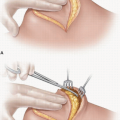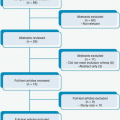Introduction
Colon cancer is a major public health problem in the United States and throughout the world. In 2013, more than 100,000 new patients in the United States were diagnosed with colon cancer,1 the third most common cancer diagnosis among both men and women. At presentation, 40% of colon cancer patients are diagnosed with localized disease, and approximately 21% are diagnosed with metastatic (stage IV) disease. Five-year cancer-specific survival rates, which depend on the stage of the disease at diagnosis, range from only 10% for patients with stage IV disease to 90% for those with stage I disease.
Although the treatment of colon cancer patients is based on multidisciplinary principles, the primary and sometimes only necessary treatment for patients with localized disease is surgical resection. Preoperative evaluation of colon cancer patients includes a full colonoscopy; an assessment of the serum carcinoembryonic antigen level; and computed tomography of the chest, abdomen, and pelvis to characterize the extent of disease, identify the presence of distant metastases, and plan the definitive surgical resection. Although detailed description of the preoperative evaluation of colon cancer patients is beyond the scope of this document, it must be emphasized that colon cancers should be clinically staged before patients undergo elective surgical therapy. Patients with distant metastases and an asymptomatic primary tumor should be considered for primary systemic therapy. The preoperative workup should also include an assessment for synchronous cancers, as the risk for such cancers may be as high as 5% in the general population.2
Surgery for colon cancer includes a thorough exploration and en bloc removal of the involved segment of colon, all associated regional lymph nodes, and any involved adjacent structures. En bloc resection is the complete removal of the tumor, attached mesentery, and adherent tissues or organs as a whole. Colon cancer occurs at various sites (e.g., cecum, transverse colon, sigmoid colon), and the site of the disease determines the operation performed and has implications for reconstruction. However, the fundamental oncologic principles underlying the surgical treatment of colon cancer are the same regardless of the site of the disease. For a unique subset of patients with very early cancer arising within a polyp, endoluminal approaches, including standard polypectomy, and more advanced endoscopic mucosal resection may be adequate therapy. For patients who have tumors that are technically eligible for endoluminal treatment but have high-risk features, radical resection is indicated according to the same treatment principles of more advanced disease. In this section, therefore, we apply the discussion broadly to the oncologic surgical principles independent of the actual site of disease.
Stay updated, free articles. Join our Telegram channel

Full access? Get Clinical Tree








